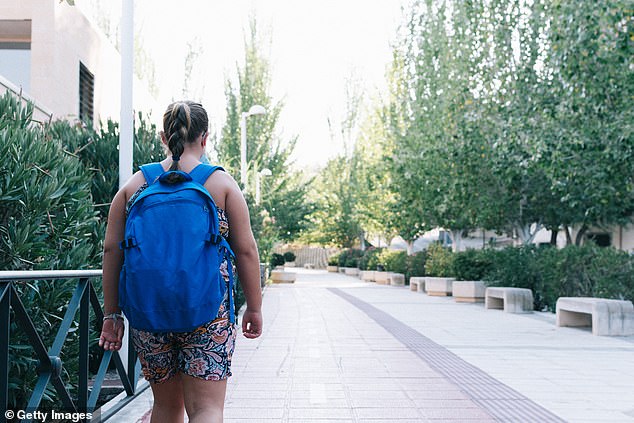Type 2 diabetes rising among Australian children
Type 2 diabetes is on the rise among Australian children
- More children with type 2 diabetes
More and more children in Australia are being diagnosed with type 2 diabetes, including children under the age of seven, one of whom is as young as four.
Doctors in northern and central Australia are concerned about the alarming rise in diabetes diagnoses in children and say action must be taken now.
According to recent data, one in 70 people in Central Australia aged 15 to 24 have the disease. The Australian reported.
This figure for the same age range in Northern Australia is one in 150.
More and more children in Australia are being diagnosed with type 2 diabetes, including children under the age of seven and one as young as four (stock image)
Pediatric endocrinologists from the Menzies School of Health Research in the Northern Territory say cases of type 2 diabetes in children have been increasing faster than anywhere else in the world.
In Australia, a child under the age of 18 is diagnosed with the disease every week.
Type 2 diabetes is common in adults aged 45 and over.
While there are risk factors that cannot be controlled, such as genetics, the disease is also associated with lifestyle choices such as diet and exercise.
Children of women with diabetes are also at greater risk.
Diabetes Australia said the disease is “increasingly common in younger age groups, including children, adolescents and young adults”, with 1,155 children now diagnosed.
Angela Titmuss, a senior research fellow at the Menzies School of Health Research and a pediatric endocrinologist at the Royal Darwin Hospital, said when she started working in the NT in 2017 she was caring for five children with type 2 diabetes.
She has now cared for more than 100 children with the disease.
“If we don’t act, I think it’s a tragedy unfolding because we’re losing these young people who have so much to give, whose lifespans are shortened by diabetes,” she told the newspaper. publication.
‘The numbers we are seeing are higher than anywhere else in the world in the last 25 years.

While there are risk factors that cannot be controlled, such as genetics, type 2 diabetes is also associated with lifestyle choices such as diet and exercise (stock image)
‘I’m really concerned about the trajectory for these young people. The disease is much more aggressive. The prognosis is worse. It also does not respond to medication.’
The situation is so dire that some patients suffer a heart attack at the age of 25, while others are expected to develop kidney failure at the age of 30.
The Menzies School of Health Research is one of Australia’s leading medical research institutes dedicated to improving the health and wellbeing of Indigenous Australians.
It is also a leader in global and tropical health research into life-threatening diseases.
In May this year, a parliamentary health committee launched an inquiry into diabetes.
